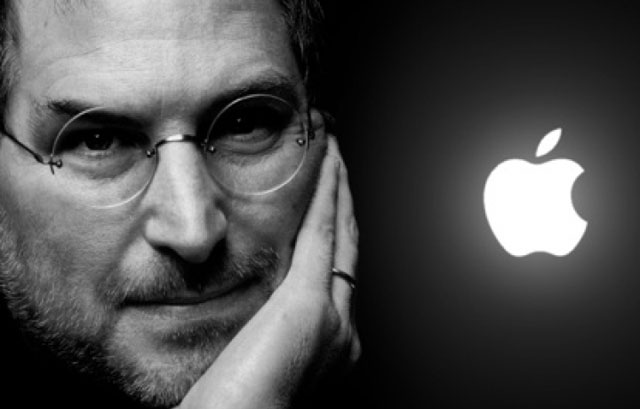Doses like Steve Jobs can succeed
The gloomy economic situation caused many CEOs to be paralyzed and panicked. But for people like Steve Jobs or Warren Buffett, reckless, risky is an important factor to achieve success.

Steve Jobs is a good example of a successful venture.
Steve Jobs is an extremely brave leader. From time to time, Apple's CEO offered new products, new services, and business models that never existed. He despised trials in the market. Therefore, Apple products are completely confidential. Jobs could not be sure that he would succeed, but he was still reckless, knowing that if he failed, Apple would suffer huge losses and he himself would become a joke for everyone.
However, the fact has proved that Apple products are the best devices and Jobs is the creator of the greatest wealth. That would not have happened if Jobs did not dare to risk.
This topic is getting hotter than ever when the economy is increasingly chaotic. Many CEOs feel scared because they constantly have to witness what they think is impossible. The US downgrade is an example. And the insecurity in every action also makes them not daring to move, doing something also feels afraid.
But it is no coincidence that next month people will publish the book: ' Daredevil: Turn doubts and fears into fuel for talent '. A consultant named Bill Treasurer used his practical experiences to teach entrepreneurs courage. Because before that, he used to earn a living as a divers. Last year, the American Business Association also organized a courageous forum. Articles and blogs on this issue are also getting more and more attention.
There is no guarantee that the economic situation will be less confusing, so managers need to become more courageous, particularly through the following jobs:
1. Maintain necessary expenses
When volatility occurs, the most common way that CEOs apply is to reduce costs as much as possible. However, the problem is that these costs are investments that will be profitable in the future such as R&D, marketing or expanding production facilities. Cutting them will be profitable this year, but will reduce profits in the future.
Shy CEOs often complain that they must do so because investors have short-term vision. But a study conducted by Mr. Baruch Lev of New York University shows that the truth is not so. Investors can completely distinguish what are the costs of profitability, and where not.
Brave CEOs will persevere with lucrative investments even during a weak economy. DuPont is still actively pouring money into R&D during the Great Depression. Creates nylon, neoprene and many other products that help them earn billions of dollars during dozens of years later. Warren Buffett's most recent investment in Bank of America is a good example of a risk. Placing $ 5 billion of Berkshire Hathaway's capital on the stock that people hate during the recession is a job that requires a lot of recklessness. And that is what makes him rich.
2. Should not be mass fired
This seems inevitable in the chaotic economic situation. Mass layoffs take place everywhere in the most recent recession, and now it's back in vogue. HSBC is about to dismiss 30,000 employees, Bank of America cuts from 3,500 to 10,000, UBS plans to leave 3,500 employees out of work and 2,350 people are about to break up with ABN Ambro.
Sometimes layoffs are necessary, however, brave CEOs will know that the long-term costs for this, especially long-term incentives for retaining employees over a difficult period will exceed. away from any savings from the dismissal today.
Again, the CEOs argued that Wall Street forced them to do so, and that it was completely wrong. Investors will be happy to lay off employees if they have just bought another company. But if the company's purpose is only to cut costs, then of course they will be deemed to be in trouble, and their stock will be mercilessly discounted.
3. Do great things
Shy leaders often do not dare to do anything during the recession. They worry that every step of theirs is risky. Therefore, they choose the solution to stand still. But that is not safe at all. During the upheaval, the victor can only be brave, and the loser is usually the only one who cares about it.
You can continue to invest in profitable projects, even if you are currently suffering losses. Or maybe it is a difficult time to help you realize that the company is spending too indiscriminately and this is your chance to reform your entire company. McKinsey's research shows that in previous recessions, companies that follow one of the above two ways are the companies with the best results. And the only companies that cut hard to survive the day were the worst companies. The lesson is: Decide what you need to do now and get the courage to do those big things.
Aristotle called courage the top quality, and Samuel Johnson called it the greatest thing. Their reasoning is the same. It is courage that makes people have every other virtue. Courage means dare to take risks, and that will become more difficult when the business environment is getting tougher. It is also the time to create winners and losers.
Accepting risks is certainly a scary thing. But looking at Jobs, Buffett or other brave CEOs, you will realize that this is your only chance at the moment.
You should read it
- ★ Steve Jobs' philosophy of life
- ★ 9 'unwritten' principles of Warren Buffett
- ★ 10 lessons about success and life from Steve Jobs
- ★ Working as an engineer for 15 years at Apple, but when it comes to demoing Steve Jobs products like this
- ★ Network Science and the mystery behind the success of Steve Jobs